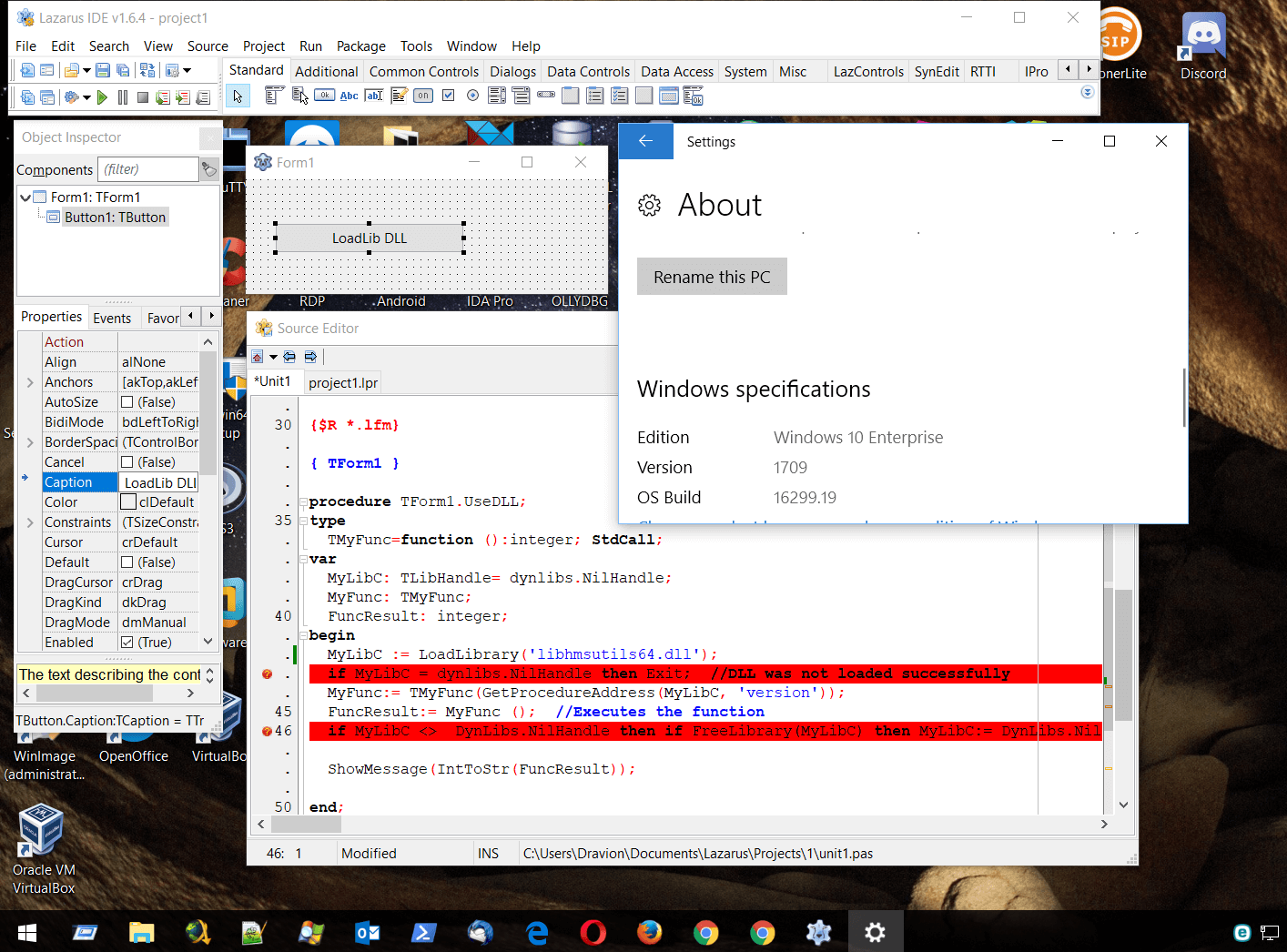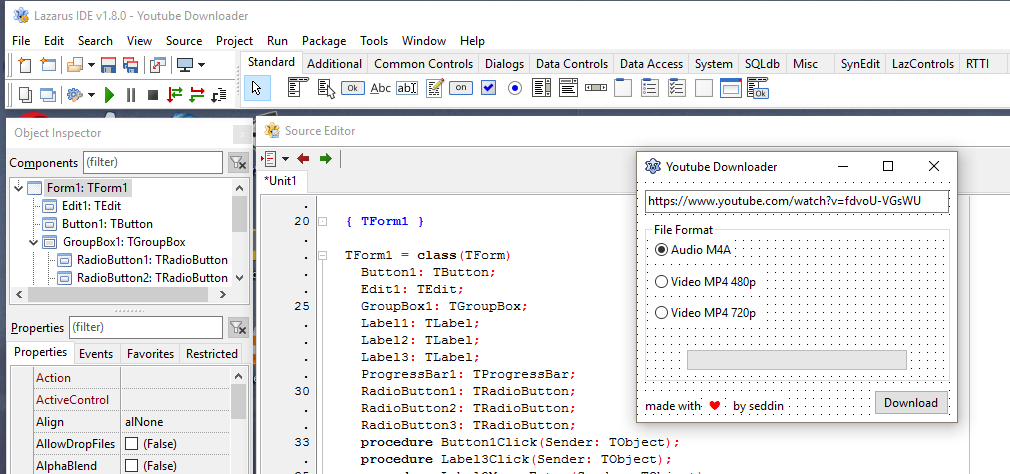


So you copy the code over to your Linux development machine, compile, and link against the gtk+ interface unit. First you decide what widget set you want to use. Let's say you are creating a product on Windows using the standard Windows widgets. If it isn't available, well you can write it.įor example. If you want to use GTK+, great! If you want it to be Gnome compliant, great! As long as the interface code for the widget set you want to use is available you can link to it. Once you write your code you just link it against the API widget set of your choice. Lazarus is being developed to be totally and completely API independent. Yeah, but what about the GUI? What widget set are you using? Since the exact same compiler is available on all of the above platforms it means you don't need to do any recoding to produce identical products for different platforms. Unlike Java which strives to be a write once run anywhere, Lazarus and Free Pascal strives for write once compile anywhere. Lazarus is the part of the missing puzzle that will allow you to develop Delphi like programs in all of the above platforms. Free Pascal is designed to be able to understand and compile Delphi syntax, which is OOP. Free Pascal is a GPL'ed compiler that runs on Linux, Windows, macOS, FreeBSD and others. It includes LCL which is more or less compatible with Delphi's VCL. Lazarus is a Delphi compatible cross-platform IDE for Free Pascal. More about the history in the Wiki So just what is Lazarus? Both of them have been the major contributors to the core of what makes Lazarus tick. Following him is Mattias Gaertner who got involved in Sept. The next oldest member of the team is Marc Weustink. The founders are not involved with the project any more.

It has had a steady growth of supporters and developers during the following years. In frustration they started the Lazarus project. It was primarily founded by three individuals:Īll three had attempted to get involved with the Megido project which dissolved.


 0 kommentar(er)
0 kommentar(er)
